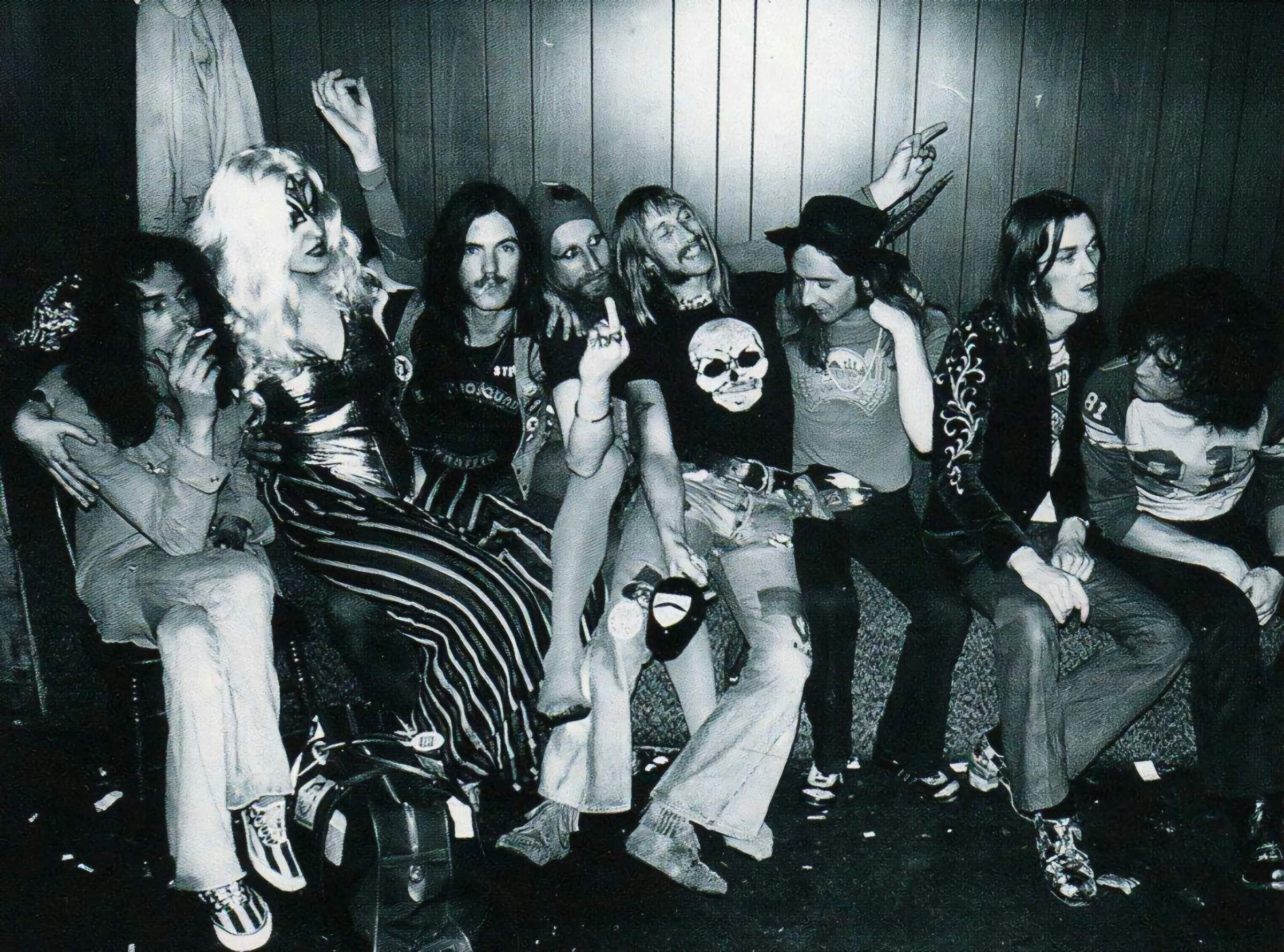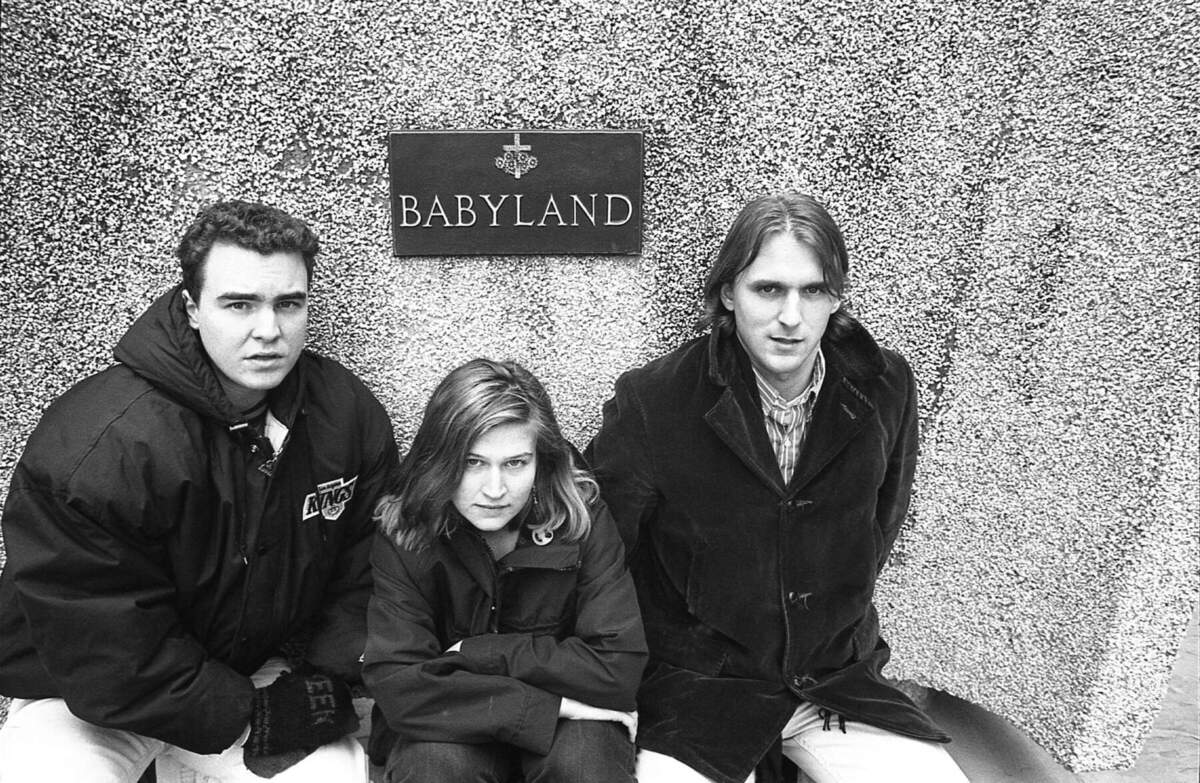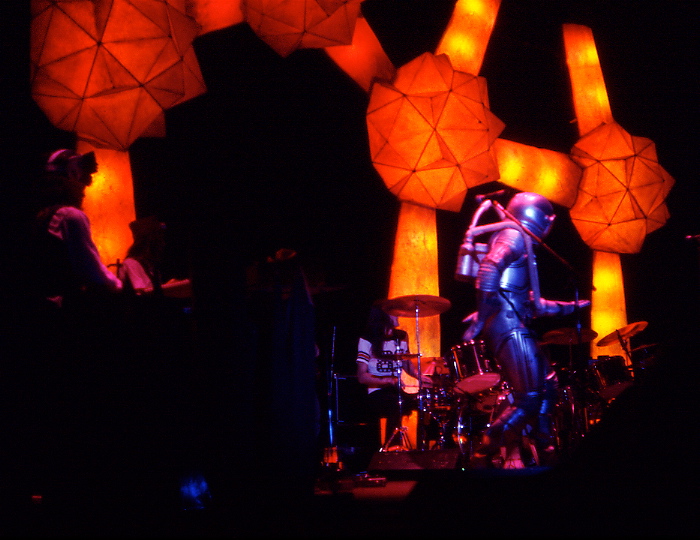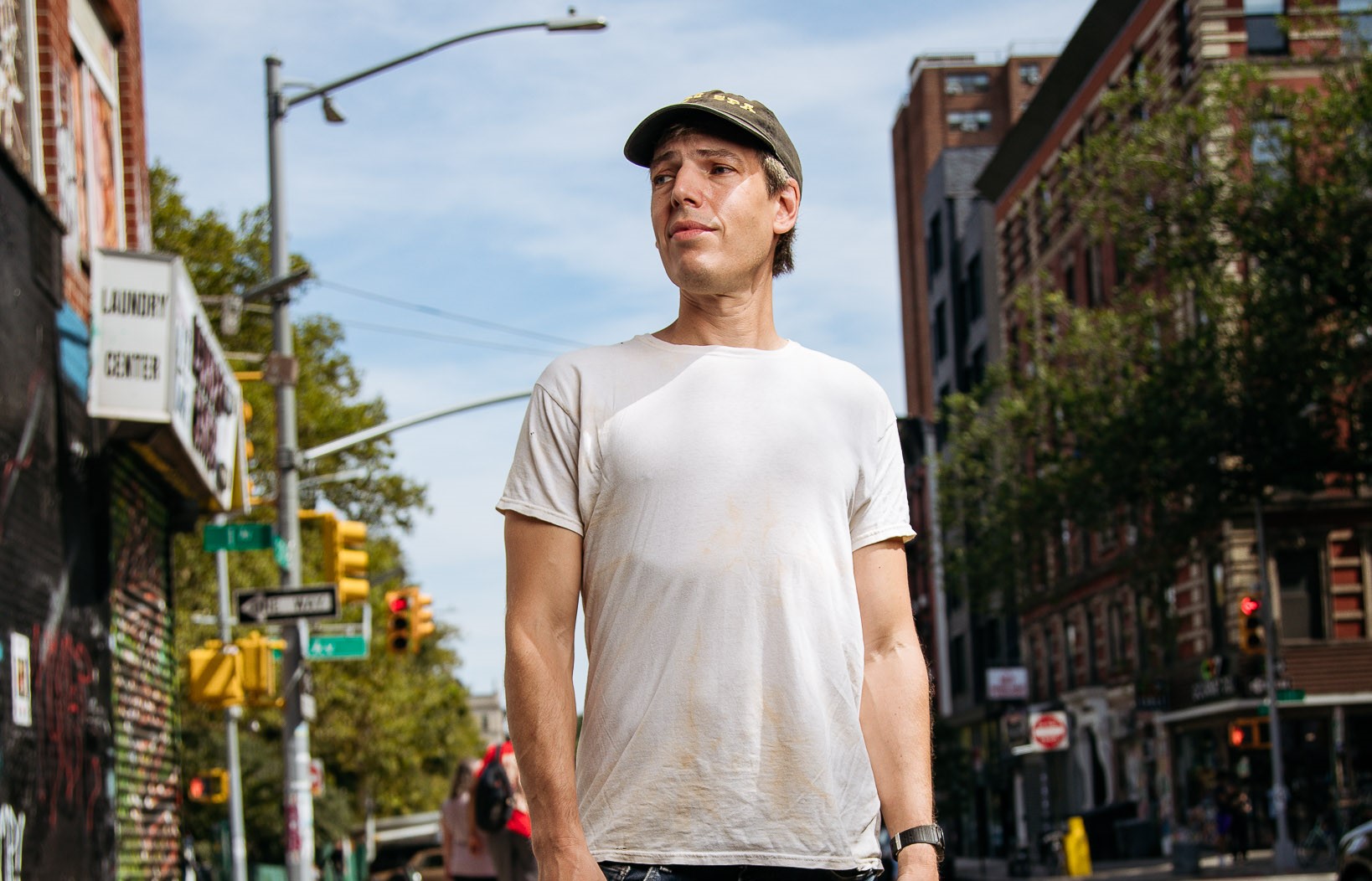From Chicken Shack to Hawkwind & Beyond: The Story of Alan Powell
Alan Powell is one of rock’s unsung drumming heroes, with a career spanning some of the most influential bands of the ’60s and ’70s, like Chicken Shack, Vinegar Joe, and Hawkwind.
He kicked things off in the mid-’60s with Ivan’s Meads, and from there, his journey took him through some of the most exciting times in rock history.
In the early ’70s, Powell became part of Chicken Shack and later joined Vinegar Joe, contributing to Robert Palmer’s rise. He also spent several memorable years playing and touring with Hawkwind, a time filled with stories and adventures. As a second drummer, Powell helped propel the band’s cosmic sound on albums like ‘Warrior on the Edge of Time’ and ‘Astounding Sounds, Amazing Music.’ His drumming, layered with Simon King’s, created a driving rhythm that perfectly matched the band’s space-bound ambitions.
But Powell didn’t stop there. After leaving Hawkwind, he worked with Mick Farren on projects like ‘Vampires Stole My Lunch Money’ and formed Tanz Der Youth, a short-lived but great band that toured with Black Sabbath. By the ’80s, Powell had relocated to San Francisco, where he fronted the new wave band Jo Allen and the Shapes, leaving behind a trail of forgotten gems.
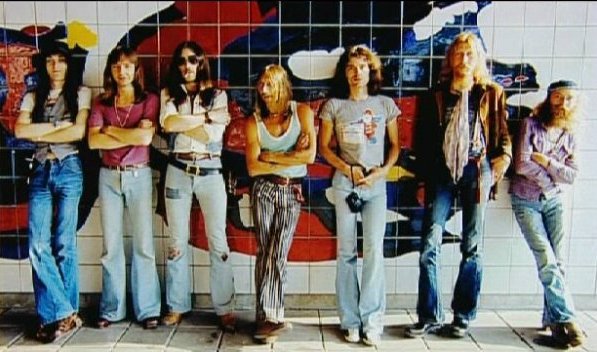
“Every gig we did was some kind of an adventure”
Could you tell us about your upbringing? Where did you grow up, and what was daily life like during your teenage years?
Alan Powell: I grew up in a town just outside of Manchester. Daily life was quite normal, nothing too exciting to report.
Was there a particular music scene you were part of back then? Maybe you had favorite hangout spots or attended a lot of concerts. I’d love to hear about the early scene in your hometown.
My first introduction to music was an English four-piece all-guitar group called The Shadows. They were an instrumental-only group and had a huge hit with a tune called ‘Apache.’
Were you in any bands before joining Ivans Meads?
Yes, first I was in a Shadows clone band when I was 14.
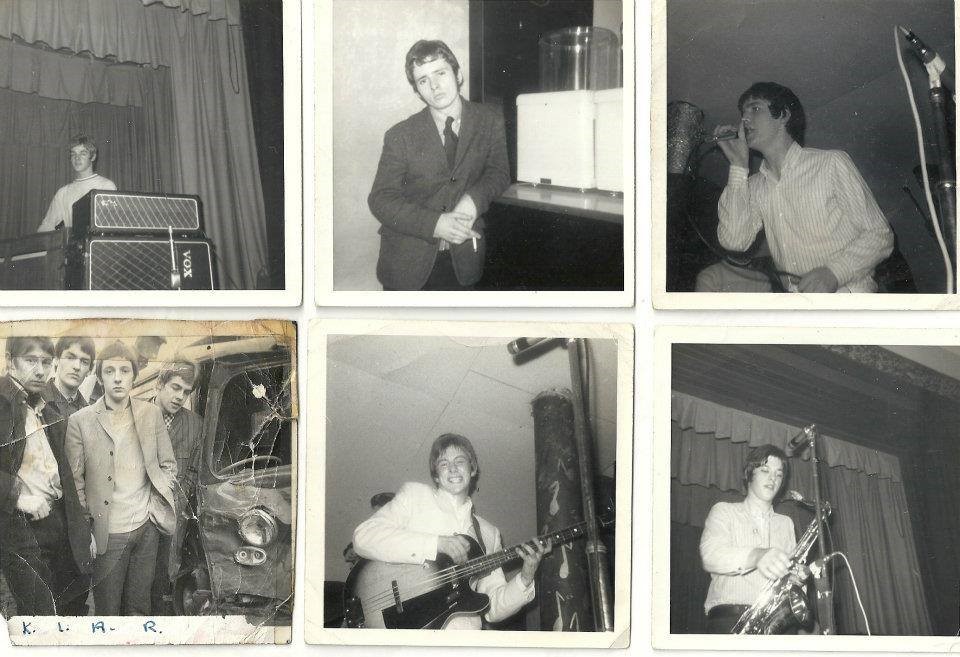
Was there a specific moment when you knew you wanted to become a drummer?
Before I became a member of the Shadows clone band, I saw them playing at a youth club dance. Once I had seen this band playing on stage, I knew that playing drums was everything I wanted to do with myself.
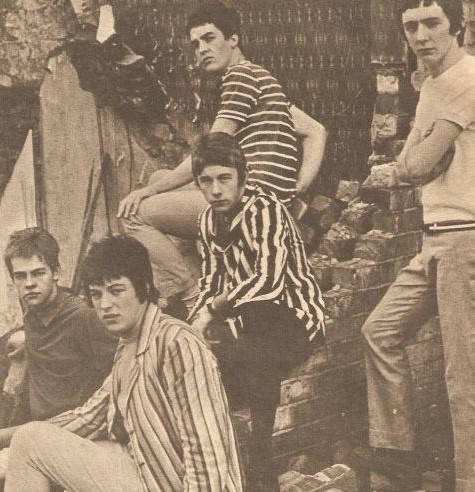
How did ‘The Sins of a Family’ come about for EMI in October 1965? Do you recall how EMI discovered your band?
Ivans Meads were originally managed by the guitarist from Billy J. Kramer and the Dakotas. He had a connection at EMI Records and got us the deal for ‘Sins of the Family.’
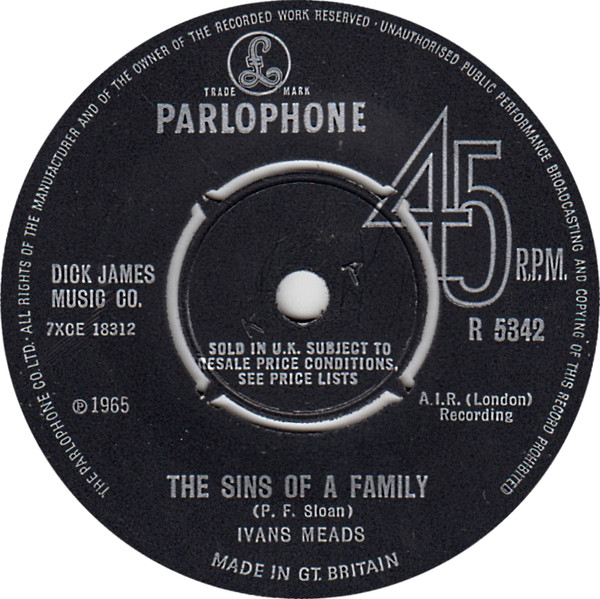
‘We’ll Talk About It Tomorrow’ followed in September 1966. Was there any talk of recording more around that time?
‘We’ll Talk About Tomorrow’ was chosen for us by the producer who did ‘Sins of the Family.’ Only the singer in the group is on the record. Everybody else was replaced by session men. That’s the way it was back then—a producer would be chosen by the record company to find a song that they believed could be a hit record, and then they would record the song and put the name of your group on the record even though you did not play on it.
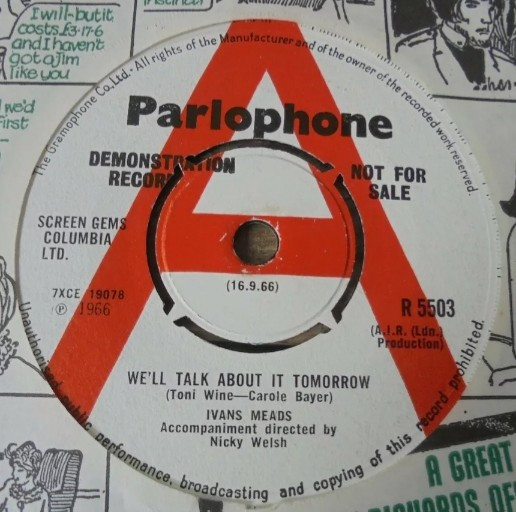
Why did the band dissolve in 1967? What are some of the most memorable concerts you played during that period?
Just after ‘Sins of the Family’ was released, Ivan, the singer, left the band and the group split up.
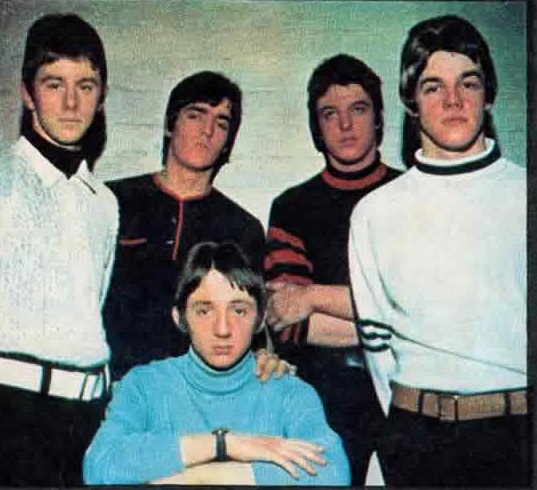
What did you do in the years between Ivans Meads and Chicken Shack?
I joined a band called The Richard Kent Style, a six-piece soul group. The Richard Kent Style released two singles and were also an in-demand backing band. We backed American singer Del Shannon, British guy Dave Berry, and Paul Jones from the Manfred Mann group.
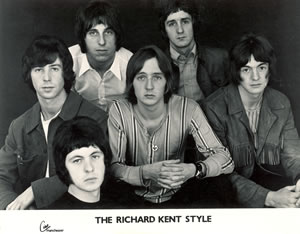
How did you first encounter Chicken Shack, and what led to you joining the band?
After the The Richard Kent Style split up, I moved to London and started going to auditions for any group looking for a drummer. I went to a Chicken Shack audition and got the job.
You were featured on ‘Goodbye Chicken Shack.’ What do you remember about that period and working on the album?
Chicken Shack worked a lot, usually 4–5 gigs a week. One of the gigs was recorded live and that became ‘Goodbye Chicken Shack.’
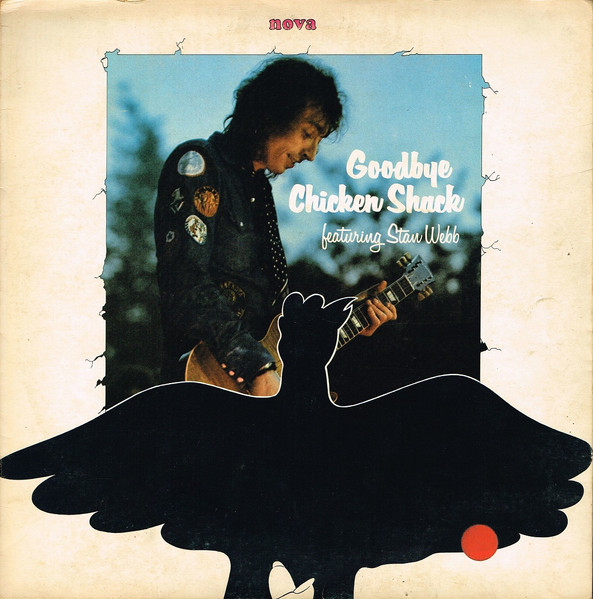
Vinegar Joe was another incredible band you were part of. You played on ‘Proud To Be a Honky Woman.’ Did you perform many concerts with both Chicken Shack and Vinegar Joe?
I did a lot of gigs with Chicken Shack. I was in the band for three years. I joined Vinegar Joe not long after Chicken Shack split. VIinegar Joe were a great band, but Robert Palmer had been offered a solo deal with Island Records, and when he left to pursue his solo deal, Vinegar Joe split up.
You remained friends with Robert Palmer from Vinegar Joe and collaborated with him later, right?
Yes. Robert and I got along well—we were both into the same things musically, and he liked the way I played. We spent a lot of time kicking ideas around. Later, when I started writing songs, I would send the demos to Robert and he ended up recording some of the songs I sent him.
Joining Hawkwind must have been quite a shift. What was that transition like for you?
Initially, I joined Hawkwind just to stand in for the original drummer who injured himself—we did a tour of Norway and when we got back, they asked me to stay on. Musically it was about as far away from what I was used to as I could imagine! Never heard anything like it. But I had a lot of fun. They were a good bunch of guys, so even though musically it was not my thing, I ended up staying for almost three years.
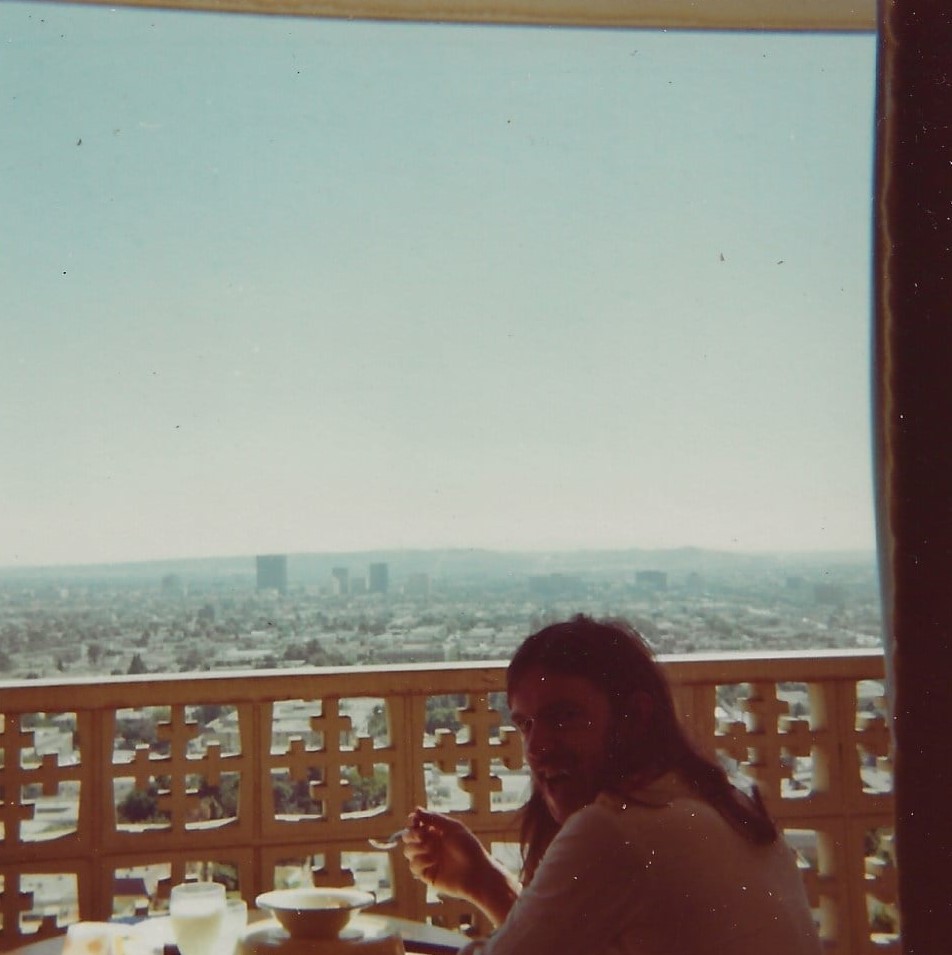
As a second drummer with Hawkwind, you recorded ‘Warrior on the Edge of Time’ (1975) and ‘Astounding Sounds, Amazing Music’ (1976). What are your strongest memories from recording those albums?
‘Warrior on the Edge of Time’ was recorded at Rockfield Studios in Wales, right in the countryside. We had quite a few mushrooms available, so it was a pretty spacey album. ‘Astounding Sounds, Amazing Music’ was recorded in London and was a much better-produced album.
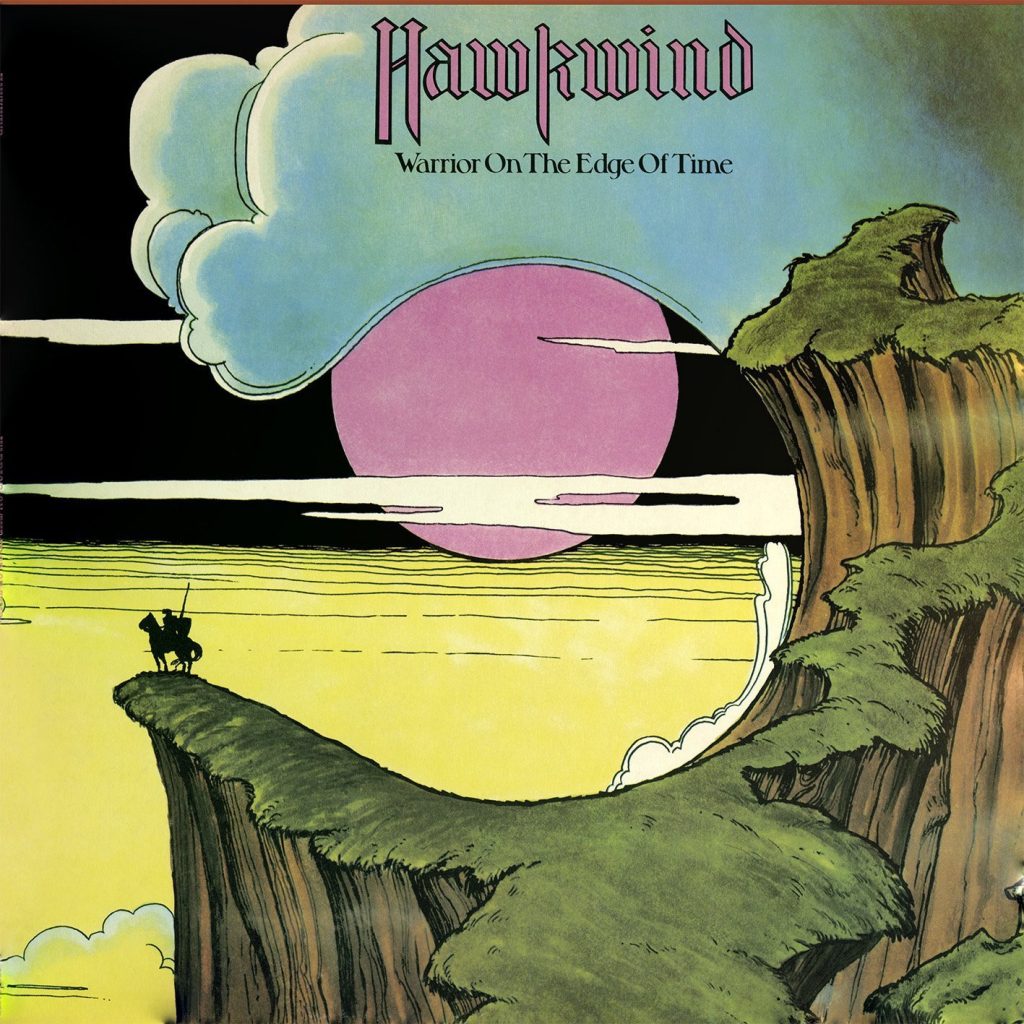
“Two drummers can create a powerful, driving beat.”
What was the idea behind having two drummers? Tell us about that concept and how enjoyable it was for you.
Using two drummers has been done by a few bands—the Doobie Brothers, Grateful Dead, etc. James Brown had three drummers! Two drummers can create a powerful, driving beat. You have to make sure that the drummers work with each other, not against.
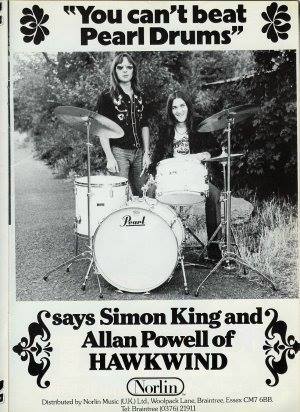
How did you typically approach making music within Hawkwind?
We would have a rehearsal and work on a new number. Dave Brock wrote most of the stuff.
What were the highlights and wildest moments of performing live with Hawkwind?
Every gig we did was some kind of an adventure…there was always something going on.
Do you have any particularly crazy or unforgettable stories from your time with Hawkwind?
The time Lemmy got busted at the Canadian border was memorable. We were crossing the border into Canada, and as soon as the customs saw us, we got pulled over. I had two joints hidden, which I stuffed into my mouth and tried to eat. I could not swallow the mouthful of dry weed and almost choked to death.
You also contributed to Michael Moorcock’s 1975 album ‘New Worlds Fair.’ What do you remember about working on that project?
Not a whole lot. I did it as a session for a fee. I never listened to the album—not my thing at all.
In 1978, you worked on Nik Turner’s album ‘Xitintoday.’ Could you share more about that experience?
I did that as a favor to Nik. Again, it was not my thing to be honest.
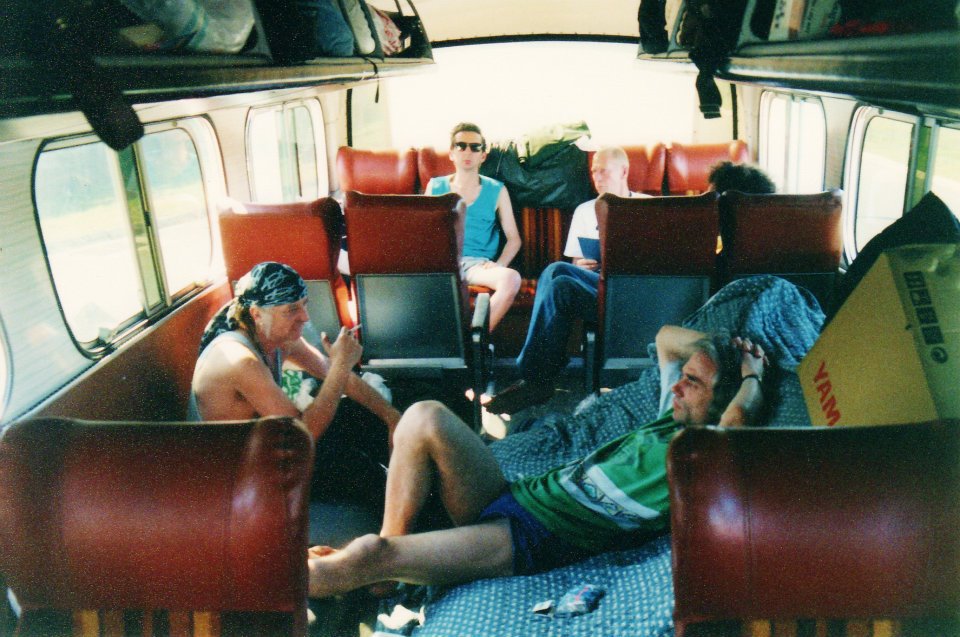
You formed a band called Kicks with Paul Rudolph, Steve York, and Cal Batchelor. Can you tell us more about that collaboration?
That was a short-lived project. We did a few gigs, but I had already decided that I had had enough of the UK and was getting ready to leave for California.
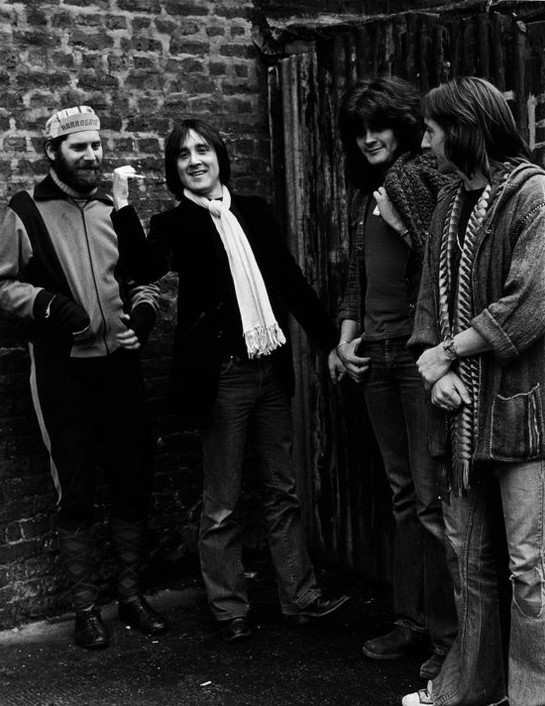
What was it like working with Mick Farren, Larry Wallis, and Wilko Johnson on the Screwed Up EP (1977) and Vampires Stole My Lunch Money (1978)?
I enjoyed doing those sessions. I was playing with Larry Wallis and Andy Colquhoun, who were my buddies. Good stuff!
In 1978, you formed Tanz Der Youth with Brian James of The Damned, released the single ‘I’m Sorry, I’m Sorry’ / ‘Delay,’ recorded a Peel Session, toured with Black Sabbath, and appeared at Turner’s Bohemian Love-In event. That’s a lot to unpack—could you tell us more about that era?
After I got fired from Hawkwind, I was approached by Brian James’s manager and offered the gig with the new band Brian was putting together after The Damned split up. It didn’t work out. Brian James is a good songwriter and guitarist. I enjoyed playing with him.
When and why did you decide to move to San Francisco?
Right after Tanz Der Youth, I had my plans in place to bail on the UK. I had had enough of the lousy weather, and I had also played in just about every venue possible. I needed a fresh start.
As the 1980s began, you started your own new wave band, Jo Allen and the Shapes, and released the single ‘Cryin’ Over You’ / ‘Lowlife,’ as well as ‘Shimmy, Shimmy’ on the 415 Music compilation. What inspired you to start this project?
I was writing my own songs and I had to become a singer in order to perform them. I needed a band to go on stage with, and I found these great musicians and we became Jo Allen and the Shapes.
You reunited with Hawkwind in the 1990s for several North American tours, resulting in the 1995 live album and video ‘Space Ritual Revisited’ and the 1996 studio album ‘Past or Future.’ What was that experience like for you?
It was fun. I was not doing anything at the time so I thought, “Why not?”
Who were some of the most important players that influenced your drumming style? What specific aspects of their playing resonated with you?
It’s a long list, but here are a few: Jim Keltner, Ringo Starr, Mitch Mitchell, Bernard Purdie, Al Jackson.
Looking back, what were the highlights of your time in the various bands you played with? Which songs are you most proud of?
I like the song ‘Jealous,’ which I wrote and was released as a single by Robert Palmer. Also ‘Life In Detail,’ again done by Robert Palmer and also released as a single from the movie Pretty Woman.
What was your most memorable concert, and why does it stand out?
Too many to single out just one.
Is there any unreleased material from any of your bands still sitting around?
Some of the Jo Allen and the Shapes stuff is out there on Spotify, I think.
What currently occupies your life?
I love to get out under the stars. I have become an avid astronomer.
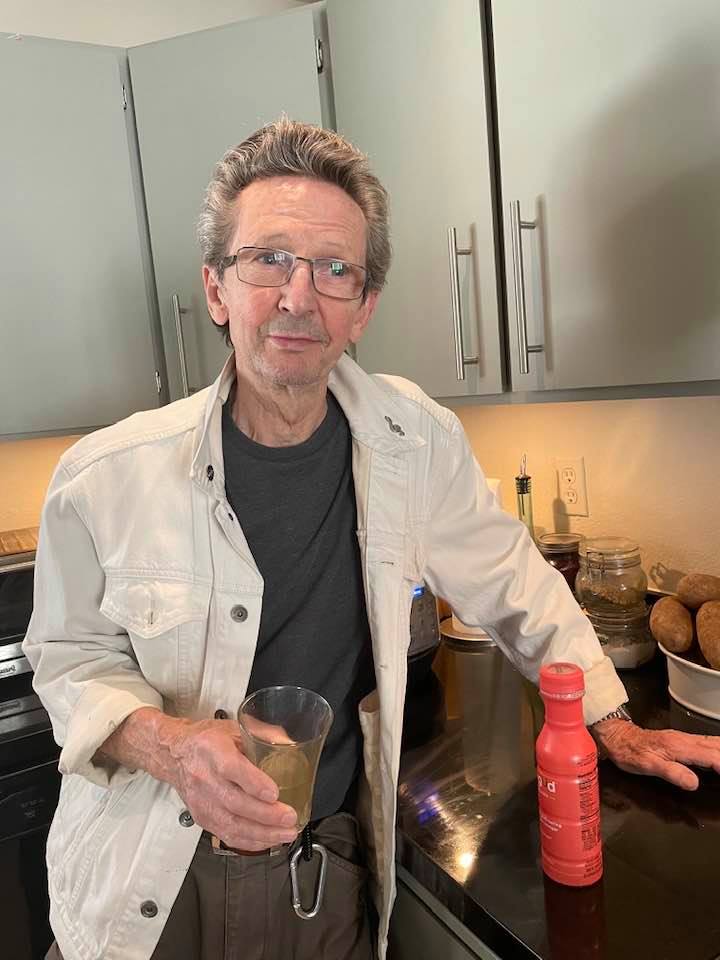
Thank you for taking the time to share your thoughts with us. The last word is yours—anything you’d like to add?
I would say that if you are reading this and are planning to get into music, be prepared to stick at it! It don’t come easy!
Klemen Breznikar
Headline photo: Photo credit unknown. Used for informational and editorial purposes under fair use. All rights remain with the original copyright holder. Please contact us for credit or removal.

